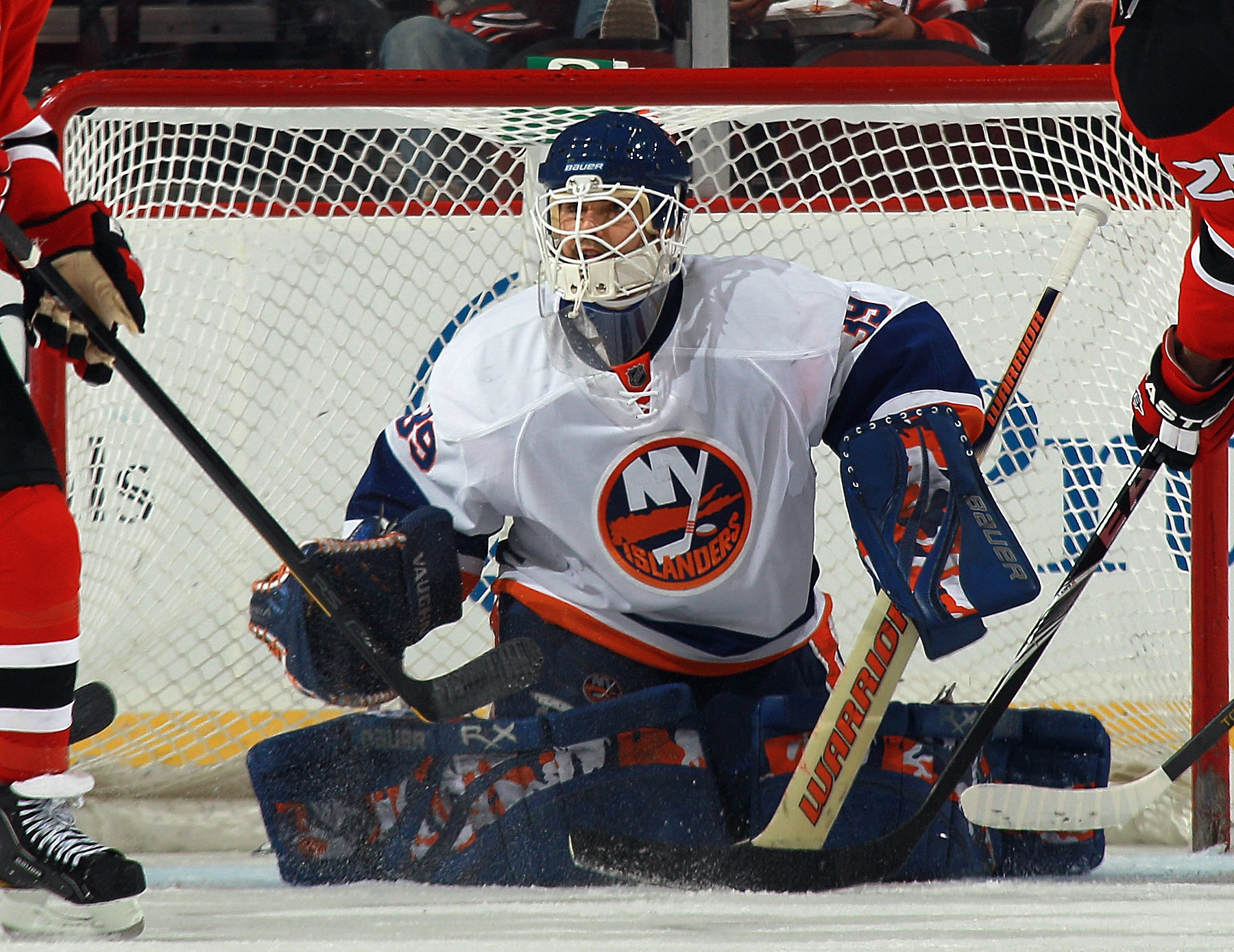

Rick DiPietro's name is synonymous with both immense promise and unfortunate setbacks in the world of professional hockey. Drafted first overall by the New York Islanders in the 2000 NHL Entry Draft, the American-born goaltender entered the league with sky-high expectations, ones that he would struggle to consistently meet due to a combination of factors, including injuries, pressure, and perhaps a less-than-ideal organizational environment.
DiPietro's journey to the NHL began with a standout freshman season at Boston University, where his impressive .913 save percentage and 2.45 goals-against average showcased his talent. His performance at the World Junior Championships further solidified his status as a top prospect. The Islanders, desperately seeking a franchise netminder, made him the first American-born goalie to be drafted first overall, a decision that carried significant weight and historical context, as he was also the first goaltender chosen No. 1 since 1968.
The early years of DiPietro's career were marked by both flashes of brilliance and periods of adjustment. He was thrust into the starting role at a young age, facing the challenges of a rebuilding team. While he demonstrated potential, consistency proved elusive. From 2005 to 2008, DiPietro enjoyed a stretch of solid play, statistically ranking among the top 10 goaltenders in the NHL. He represented the United States at the 2006 Winter Olympics in Turin and earned an All-Star Game selection in 2008, signaling a potential arrival as one of the league's elite.
However, DiPietro's career trajectory took a sharp turn due to a series of devastating injuries. Knee problems, hip ailments, and concussions became recurring obstacles, limiting his playing time and hindering his ability to perform at his peak. These injuries not only affected his physical capabilities but also took a toll on his mental state. The physical setbacks arguably played a significant role in preventing him from reaching his full potential.
Adding to the complexity of DiPietro's story was the unprecedented 15-year contract he signed with the Islanders in 2006. While the long-term commitment demonstrated the team's faith in his abilities, it also placed immense pressure on him to perform at an exceptional level consistently. As injuries mounted and performance waned, the contract became a symbol of the Islanders' misjudgment and a burden for both the player and the organization. The team eventually bought out the remainder of his contract, a decision that continues to impact their salary cap situation years later.
Despite the challenges and setbacks, DiPietro's career is not without its positive moments. He ranks third in franchise history for wins by a goaltender. His resilience in the face of adversity and his dedication to the sport are commendable. After his playing career ended, DiPietro transitioned into broadcasting, serving as an analyst for NHL coverage on ESPN and a commentator for Islanders telecasts on MSG, showcasing his knowledge and passion for the game. He also co-hosts "DiPietro & Rothenberg" on ESPN Radio New York.
While DiPietro's career may not have unfolded as many had hoped, his story serves as a reminder of the unpredictable nature of professional sports and the impact that injuries and external pressures can have on even the most promising talents. He remains a significant figure in Islanders history, a player whose potential was undeniable, but whose career was ultimately cut short.